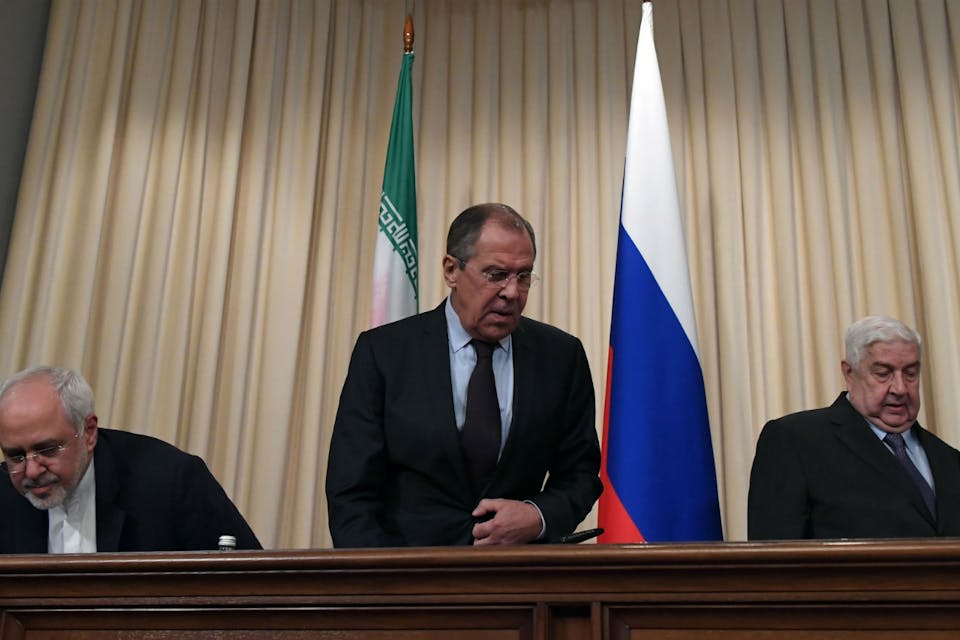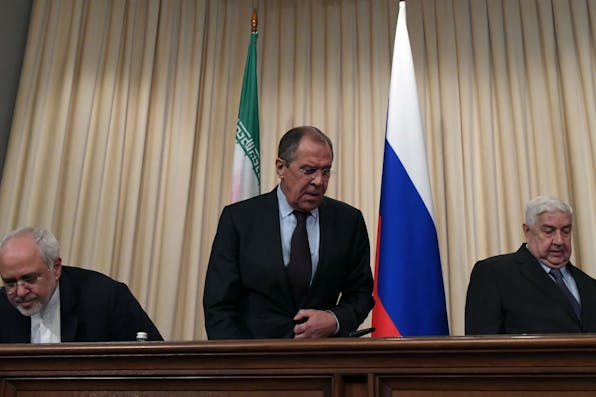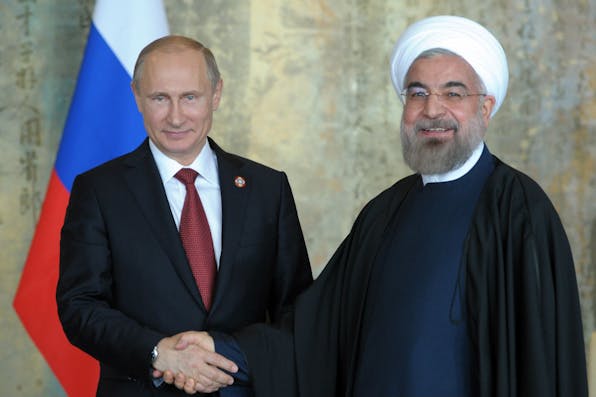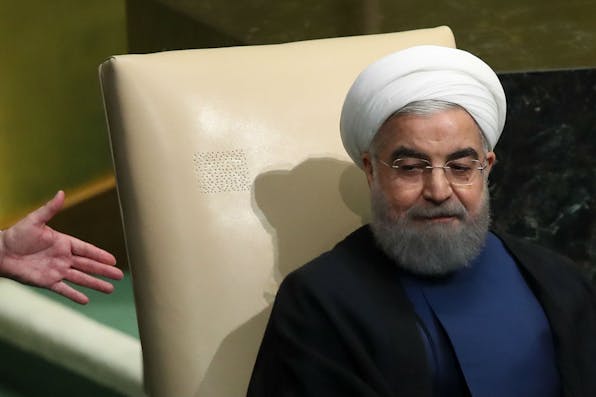
September 18, 2017
How to Drive a Wedge Between Russia and Iran
The two countries' shared Middle East interests don't extend much beyond keeping Assad’s blood-drenched Syrian regime in power. That presents an opportunity.
Michael Doran and Peter Rough have done a masterful job of sorting out the nature of the challenge that the U.S. now faces in the Middle East. They are right to assert that, to the extent that it has put together a coherent concept, the Trump administration has so far tended to remain bound to the policy options imposed on it by the legacy of the Obama administration both in Syria and in the region at large. That legacy is the result of the former president’s deliberate decision to engage with Iran as if it were a normal nation seeking security and pursuing its raison d’état.
But it is not. As Henry Kissinger reminds us in World Order (2014), Iran under the Supreme Leader Ali Khamenei is very much a revolutionary power, bent on undoing the regional order and, beyond that, what may be described as the post-1945 global dispensation—the same dispensation that notably includes a state, Israel, which Iran seeks above all to extirpate. Doran and Rough are very sober, and very sobering, about the rise of Iran as a disruptive force across the region—a force, moreover, that at least in Syria has been in close coordination with Putin’s Russia—and about the deeply ingrained anti-American obsession that drives policy in both Tehran and Moscow. Hence, they stress, the need to keep the Iranian challenge very much at the top of U.S. policy in the region, and to prepare for the day when an American-led challenge to the sinister aspects of the 2015 nuclear agreement with Iran (JCPOA) can be backed up by a credible threat of sanctions and even military action.
Within this framework, the authors’ blunt message about, in particular, the misguided U.S. alignment with Iran in the war against Islamic State is highly pertinent. Right from the beginning, the proposition that Shiite Iran was needed as an ally against this particularly virulent strain of Sunni Islamist totalitarianism resembled nothing so much as an argument for inviting a man-eating tiger to help hunt down a poisonous backyard snake. Both Israel and a range of key Arab states, led by Saudi Arabia, pointed out to the previous administration the dangerous folly of this idea, to no avail, and both were hoping that under the new administration, priorities not just rhetorical but practical would undergo a change.
Responses to September ’s Essay

September 2017
America Is Not in a Zero-Sum Contest with Iran

September 2017
How to Drive a Wedge Between Russia and Iran
By Eran Lerman
September 2017
The Moscow-Tehran Axis Is a Coalition of the Weak
By Frederick W. Kagan
September 2017
Iran Must be Contained, but Iran Must Also Not be Viewed in Isolation
By Michael Doran, Peter Rough